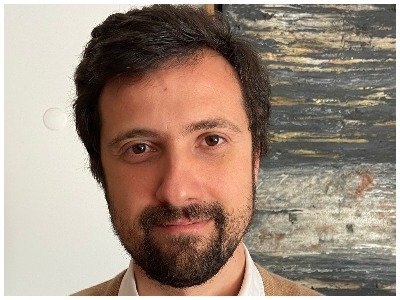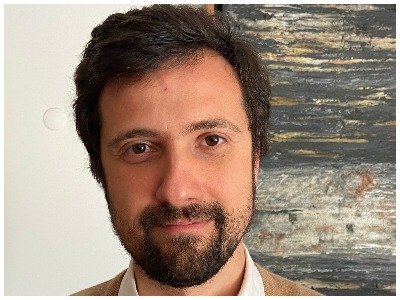Bruno Caeiro: “I would say that the two biggest frustrations are the few alternatives to the traditional hourly rate model and the lack of clear agile solutions.”

Bruno Caeiro has been with Ageas Portugal since May 2016, assuming the responsibiity as head of Legal since September 2021. A former CMS lawyer, Caeiro shares with Iberian Lawyer how his appreciation and passion grew for all things insurance while working in private practice, and how this led to him working at the international group Ageas. The interview highlights Caeiro’s views on the market from the in-house perspective, as well as his frustations and positive experiences of working with outside counsel
 You began your career as a private practice lawyer at CMS. How was that experience for you and what made you decide to go in-house?
You began your career as a private practice lawyer at CMS. How was that experience for you and what made you decide to go in-house?
Following graduation from law school, the traditional route in Portugal is to join a law firm for an internship as, among other reasons, it allows you to get in touch with the law from a more practical standpoint that lacks to some extent during the university and to deepen your technical skills. Luckily, I was fortunate to join a top law firm in CMS which exposed me from the get go, to a very demanding environment and to the hardest hurdles of the profession in a make it or break it way. For that and mostly for the great people that provided me guidance along the way, CMS shaped significantly my approach towards the legal profession enabling me to learn how to better cope with substantial workloads and with different and complex maters under the pressure to deliver in such circumstances. As for the transition to in-house it was not something planned, but rather a consequence of a few decisions and circumstances. Despite my main expertise at CMS were civil and criminal litigation, at some point I was also challenged to contribute for the development of an insurance law department. In the process I became very fond of insurance not only from a legal standpoint, but also from the business side. I used to see myself following the law firm path but when unexpectedly an in-house role was proposed my interest in expanding my knowledge in insurance coupled with the opportunity to leave my comfort zone and better understand clients, made the rest. I decided to take the risk and gladly so.
How has your journey been since starting to work in the Legal team at Ageas since 2016?
When I firstly joined Grupo Ageas Portugal, I became member of the legal team that at the time provided only legal support to the companies forming Grupo Ocidental. Only latter the team and the one allocated to the former AXA companies merged and started to provide legal assistance to all Ageas companies. From that reorganisation a position of coordination of the legal counselling team was set up and I ended up tasked with such responsibility.
From a transition from a law firm to an in-house position there are considerable differences in the way the legal support is expected to be performed. Instead of being requested occasionally for very specific purposes or as the last resort of a particular matter, in-house legal teams are required to work throughout the business cycle. That slightl difference demands from the legal team a more permanent collaboration with the business areas, a solution-based mindset and an easily understandable advise, all without compromising the technical level that is expected from us. In my favor along this journey of change I found in Grupo Ageas Portugal a rewarding environment that fosters mutual aid and provides the necessary guidance to newcomers.
How would you describe the culture at Grupo Ageas Portugal?
In addition to a very vibrant, challenging and client-driven culture, in my view what actually separates Grupo Ageas from its competitors, is an organisation that strongly challenges everyone to push boundaries and that effectively champions partnership and local autonomy. When one looks into Grupo Ageas it is easily perceived that although in its core stands an insurance business, our activities go beyond the transactional aspect of insurance and shows commitment with their clients’ needs and the responsibility to have an impact on the community at large. That could be seen for instance in the complementary businesses to insurance that also form the group and our goals towards sustainability. On the latter we have just released our first report fully dedicated to sustainability which I strongly recommend everyone to have a look.
This is only possible because from the top-down people in organisations are dared to get out of their comfort zone having the best interests and practices in mind. In order to act upon mutual collaboration and understanding are key thus, focusing on our case, it is almost natural for our legal team to work closely and develop synergies not only with business areas, but also with other transversal areas such as Compliance, Data Protection Officer, Audit or Risk. Furthermore, unlike other international companies the decision-making process is not merely a result from instructions issued from a central headquarter, but it is always carried out having as a focal point the needs and the culture of the local market. This also leads for a work environment built upon trust and a path to bring the best out of each employee.
How many people work in the legal department you lead today? Have you grown the team?
We have a total of sixteen people divided by three legal support areas, a number that has stabilised in the recent few years. Despite this we are increasingly challenged to do more, faster and better as it is expected in an ambitious Group like Ageas, we do not anticipate that number to grow. The goal is rather to streamline our processes, increase our efficiency and, in turn, increase our current capabilities so that the actual team might add more value and achieve their individual and Grupo Ageas goals.
How do you select your external legal advisors? Do you have panels/have lawyers pitch regularly for work? how much do you value sector experience?
An experienced and competent external legal support is key for our goals. Rather than having a very formal and distant relationship with our advisors, we prefer a model of work that favors proximity and alignment with Grupo Ageas Portugal way of doing business and for that reason we only occasionally seek to add a new legal provider into the mix. That being said, the dimension and diversity of the Group demands a considerable workstream of legal needs so we also have to pay attention to the development of the legal market and to be open to evaluate opportunities that might fit our needs. Whereas in litigation an insurance experienced lawyer is almost a must-have requirement, we have been concluding that on the advising side having a deep knowledge in insurance law, where we are already very strong, is not as relevant as deep knowledge on other complementary area of expertise.
What changes have you seen in the legal market in the way law firms communicate with GCs?
It was very common to see in the past external lawyers directly assigned and working directly to board members. Nowadays, with the realisation by companies of the importance of also having good legal capability internally, the communication between lawyers and companies is more frequently bridged by General Counsel which in fact eases and adds value to the relationship by their ability to factori in both legal and business needs. As a consequence, lawyers needed to focus more on their outcomes, became more pressured to excel from a technical standpoint and to certain extent impacted their communication with the companies and their General Counsel. Nonetheless, this should not by any means diminish the lawyers need to invest in understanding the demands of the business, their capacity to be more responsive and to fully grasp the sector to which they address. In the end it will not be another peer but the organisation who will judge their deliverables.
How is the legal tech evolution impacting your organisation and your relationship with external advisors?
I would say that we are still in the early stages of our tech journey. As many other in-house legal teams we have to deal with competition for IT budget and acknowledge that we are not a top priority of IT investment as it will not provide immediate return on investment in comparison with other business areas. Therefore, we understand that the changes will come incrementally and that in the meantime we must dare to be creative in order to find interim solutions for us to improve our data capture, to reporting and assessment purposes, and to be able to focus more in high-skill tasks. As an example that we are looking to implement are self-service tools in currently available software. This poses a challenge for us but also an opportunity for our external advisors to be catalysts of driving innovation by making available legaltech that is for their clients are hard to get otherwise from within their large organisations.
What is your biggest frustration when working with external law firms?
I would say that the two biggest frustrations are the few alternatives to the traditional hourly rate model and the lack of offer for clear agile solutions aimed at enabling in-house teams to scale up and down according to the circumstances and demand. Somehow related with the latter and despite some recent announcements, the perception is that law firms in Portugal are still yet to make available automated solutions that could effectively be used and transferred to their clients.
What do you value the most when working with external counsel?
Availability, experience and a solution-based approach.
When was the last time a law firm really impressed you?
It has been always impressive for me the high level of expertise of many good law firms and the capacity that they show to deliver outstanding legal assistance that goes head-to-head with other firms in larger markets.
By Michael Heron
To read the full interview on issue number 111 click here.












